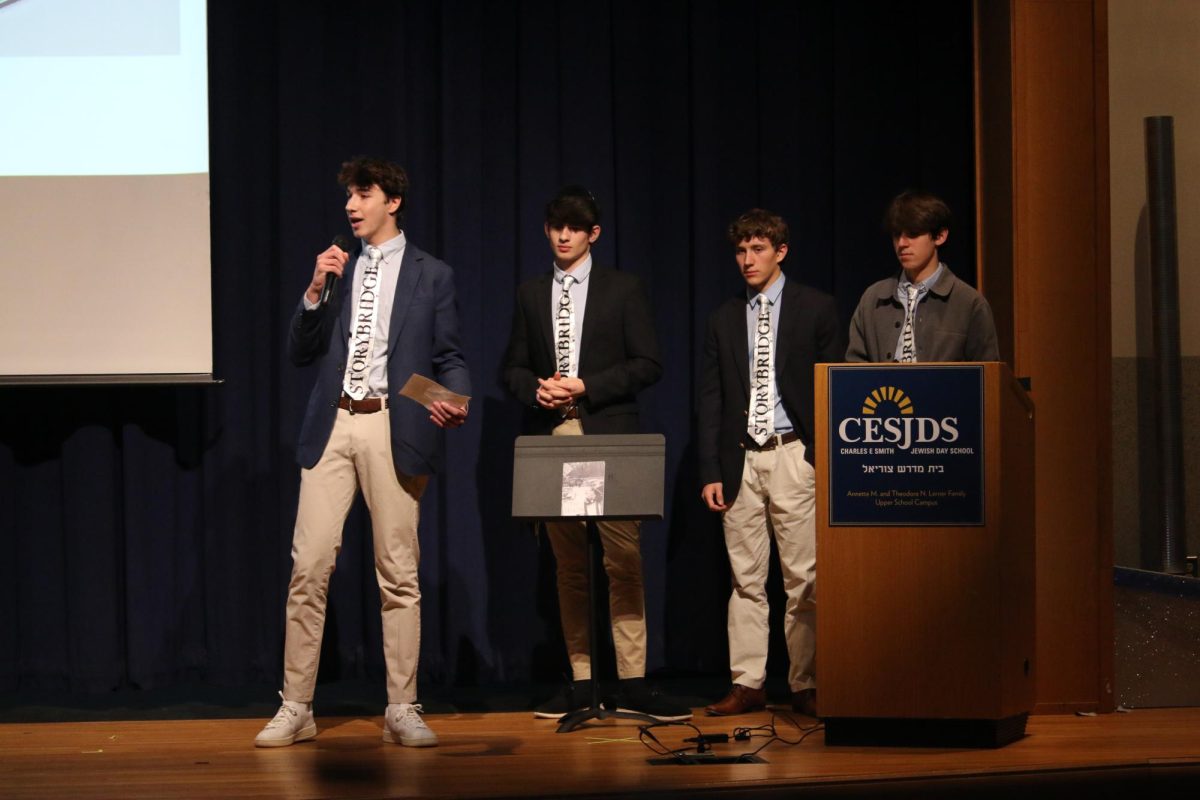For years, David Bachrach, federal workforce consultant and parent of senior Adam Bachrach and Josh Bachrach (‘21), has helped federal agencies in building their teams, determining who to hire and how much to pay them. But now, instead of recruiting new employees, his job has shifted almost entirely to helping various agencies downsize.
Since President Donald Trump’s inauguration on Jan. 20, approximately 56,290 government employees have been laid off, along with 75,000 employees who took buyouts and 171,000 planned reductions, according to the New York Times as of April 1. The Trump administration is attempting to shrink the federal government as a way to “enhance accountability, reduce waste and promote innovation,” per the White House site.
According to a form sent out by Head of School Rabbi Mitchel Malkus, one-third of CESJDS families have at least one parent working in government or for government contractors, and three out of 550 JDS families have reported losing their jobs as of March 18. Amid sweeping government cuts and hiring freezes, many of these families are feeling the impact, with Bachrach describing the feeling in the office “like living inside a 24-hour funeral home.”
“A lot of people have said that they have a great sense of uncertainty about whether or not they’ll have a position in the next month or two months, whether it’ll be eliminated,” Malkus said. “Even those who may not have expressed that concern have said that it’s been really difficult working in the government right now, [and] that there’s not a clear sense of what they’re supposed to be doing.”
According to Bachrach, hiring freezes are common at the start of every presidential administration as new leaders reassess priorities and determine which programs to fund. For Bachrach, this period of adjustment is expected. Although it typically results in a temporary slowdown, a hiring freeze is generally viewed as necessary in order to ensure the government works efficiently in line with the new administration’s goals.
But according to Bachrach, this hiring freeze is unique, as agencies are not only halting hiring but making drastic cuts to existing positions and contracts. Having worked with the government since President Bill Clinton’s administration, Bachrach describes the current situation as “chaotic” and “unlike any other.”
“The administration is telling employees that they are essentially useless, that they are lazy, that they would do better work sitting at home watching TV than they would right now with the work they’re doing,” Bachrach said. “And this message is going out to everyone, including people who are printing money for the American people to use, people who are investigating crimes, people who are running the national parks, people who love what they do and are passionate about what they do and have given years or even decades of their life to do what they do.”
For a JDS parent who was recently laid off from the Department of Education, where the workforce was cut by nearly 50% according to a White House press release, the cuts came suddenly.
“We felt like frogs waiting to be boiled,” the parent, who wished to remain anonymous, said. “There was no secret that it would happen, but I think it was unclear how they would do it … And apparently the plan was to cut half the agency and make it inoperational.”
Despite some signs that the agency was at risk, the scale of the layoffs shocked many employees, according to the parent. For this parent, the immediate priority now is finding new employment in order to keep their children at JDS, where high school tuition costs $47,150, though 53.33% of families are currently receiving financial aid.
“JDS is very, very expensive,” the parent said. “So, you know, being able to keep our kids at JDS is a priority, so I have to find a job quickly.”
In response, Malkus organized an emergency tuition assistance program where families who need support can apply for additional financial aid. This initiative mirrors the one used during the COVID-19 pandemic when similar financial difficulties affected many families at JDS.
“This cause feels like an opportunity to support our own community,” Malkus said. “And while it’s not something that I think we could have foreseen coming, it’s something that we want to make sure that we step up in the community, and we want JDS to be an anchor for the families who are experiencing economic hardship because of being let off or changes in the government.”
Additional reporting by Jonah Mitre, Opinion Editor.








